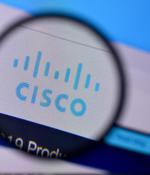Security News

In September 2020, Cisco patched four Jabber vulnerabilities, but as it turns out, three of four have not been sufficiently mitigated. The incompleteness of the patches was discovered by Watchcom researchers - who discovered and disclosed the batch of vulnerabilities made public in September - after one of their clients requested they verify the effectiveness of Cisco's patches.

Microsoft has addressed critical remote code execution vulnerabilities in multiple SharePoint versions with this month's Office security updates. Redmond also issued the December 2020 Patch Tuesday security updates, with security updates for 58 vulnerabilities, nine of them rated as Critical.

A previous patch for Cisco's Jabber chat product did not in fact fix four vulnerabilities - including one remote code execution flaw that would allow malicious people to hijack targeted devices by sending a carefully crafted message. Watchcom added: "The patch released in September only patched the specific injection points that Watchcom had identified. The underlying issue was not addressed. We were therefore able to find new injection points that could be used to exploit the vulnerabilities."

The bug impacts Cisco Jabber for Windows, Jabber for MacOS and the Jabber for mobile platforms. The most serious of the bugs, a cross-site scripting flaw, impacts Cisco Jabber for Windows and Cisco Jabber for MacOS. The flaw allow an authenticated, remote attacker to execute programs on a targeted system.

A zero-click remote code execution bug in Microsoft Teams desktop apps could have allowed an adversary to execute arbitrary code by merely sending a specially-crafted chat message and compromise a target's system. Microsoft did not assign a CVE to this vulnerability, stating "It's currently Microsoft's policy to not issue CVEs on products that automatically updates without user's interaction."

At some point since August, Microsoft quietly fixed a cross-site scripting bug in its Teams web app that opened the door to a serious remote-code-execution vulnerability in the Linux, macOS, and Windows desktop versions of its Teams collaboration app. The security researcher who identified the issue suggests Microsoft should have done more to acknowledge the risk, noting that Microsoft didn't bother to publish details or obtain Common Vulnerabilities and Exposures identifiers for the flaws because Teams gets automatically updated.

Separately, the Cybersecurity and Infrastructure Security Agency in October warned that APT groups are exploiting the MobileIron flaw in combination with the severe Microsoft Windows Netlogon/Zerologon vulnerability. The flaw, first reported to MobileIron by Orange Tsai from DEVCORE, could allow an attacker to execute remote exploits without authentication.

The UK National Cyber Security Centre issued an alert yesterday, prompting all organizations to patch the critical CVE-2020-15505 remote code execution vulnerability in MobileIron mobile device management systems. NCSC is warning that they are aware of hacking groups actively using the MobileIron CVE-2020-1550 vulnerability to compromise the networks in the healthcare, local government, logistics, and legal sectors.

A security vulnerability in the infrastructure underlying Germany's official COVID-19 contact-tracing app, called the Corona-Warn-App, would have allowed pre-authenticated remote code execution. Researcher Alvaro Muñoz wrote in a report this week that he and his team at GitHub Security Lab was chasing down RCE vulnerabilities on the platform and found one in the infrastructure supporting CWA for Android and OS. The team said it worked with SAP to mitigate the issue, adding as a server-side issue, the mobile apps themselves were not impacted, and that no data was collected beyond a device's IP address.

Millions of malicious scans are rolling across the internet, looking for known vulnerabilities in the Epsilon Framework for building WordPress themes, according to researchers. "The security flaws on WordPress websites in themes using the Epsilon Framework are just another example of this content management system's inherent security risks," said Ameet Naik, security evangelist at PerimeterX, via email.